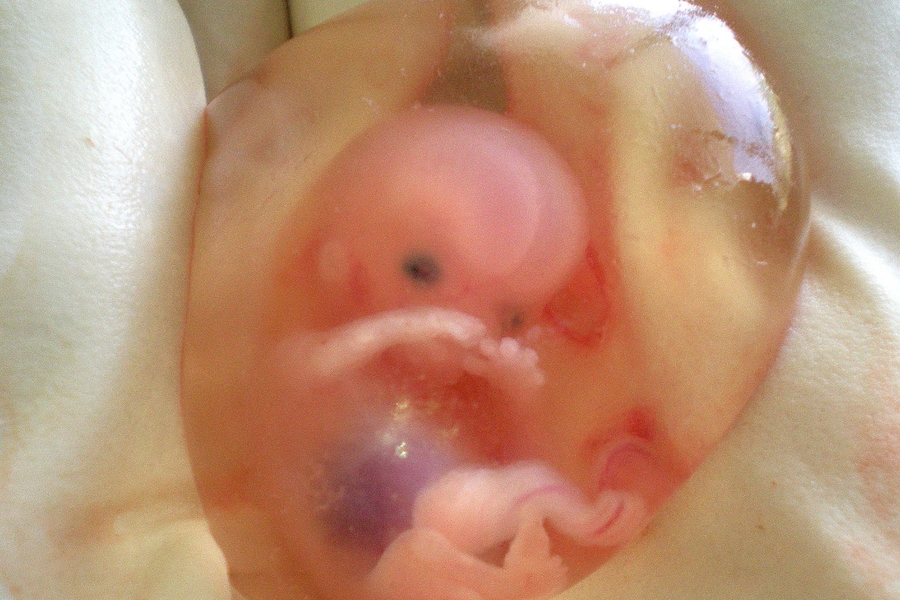
Consequences Of Meconium Aspiration In Womb
23 Mar 2018 | 4 min Read
Babychakra
Author | 1369 Articles
All you need to know about Meconium Aspiration Syndrome
Meconium is your baby’s very first poop. Your baby passes meconium either before, during or just after delivery. If it is passed before delivery, it may cause meconium aspiration syndrome or MAS. This MAS can have immense complications for your baby and is a medical emergency.
What is meconium and meconium aspiration syndrome?

Meconium stool is greenish or blackish colored sticky, viscous and tar-like. It is made up of lanugo (small baby hair), intestinal epithelial cells, mucus, amniotic fluid, bile and water. It is odorless.
This meconium is usually passed immediately after birth or within few hours of birth. But, when your baby in womb, experiences some stress it may pass meconium when still in the uterus. This then mixes with amniotic fluid. While drinking amniotic fluid, this mixture of amniotic fluid and meconium is consumed by the baby and reaches its lungs. This inhalation of meconium is called as meconium aspiration syndrome.
What can cause meconium aspiration syndrome?
Meconium aspiration occurs when your baby experiences some stress. This can be due to low oxygen availability to the baby. Some of the common causes for meconium aspiration syndrome are
- Pregnancy beyond 40 weeks
- Infection in the mother
- Prolonged or difficult labor
- Mother’s existing health issues like diabetes or high blood pressure (hypertension)
The most common reasons for MAS are pregnancy beyond full term, because as the pregnancy progresses beyond full tem, the amount of amniotic fluid reduces and meconium in amniotic fluid gets concentrated and meconium aspiration becomes even more likely.
What could be the symptoms of meconium aspiration?

Symptoms of meconium aspiration are as follows
- Respiratory distress
- Grunt during breathing or rapid breathing
- Skin of the baby becomes bluish colored
- Limpness of the limbs
- Low blood pressure
- In severe cases, there is no breathing, as airway is completely blocked by meconium
Severity of these symptoms depends on the amount of meconium aspirated. Some babies have very little or no aspiration and they do not show any symptoms while some babies have no breathing at all, because of excessive aspiration.
How is MAS treated?
Meconium aspiration syndrome treatment focuses on removing the meconium plug from the wind pipe or lungs. This is done immediately after delivery with the help of suction. In severe cases the suction tube is passed in to the baby’s wind pipe (trachea) and meconium fluid is sucked out.
If this aspiration syndrome has caused low heart rate or breathing, a bag mask is used to support the breathing. In severe cases, the baby may be kept under treatment and observation in a special care unit (N-ICU).
Oxygen therapy may be needed to avoid meconium aspiration syndrome brain damage.
What could be the complications of meconium aspiration?
In most cases, newborns won’t have any long term complications, but can have an immediate impact. Meconium, causes infection and inflammation of lungs. It can block the air passage which can cause collapse of the lung. In some cases, the air inside the lung escapes into the chest area and causes pneumothorax.
In some severe cases, the baby develops high blood pressure in the blood vessels of lungs, which restricts the blood flow to lungs and makes it difficult for baby to breath. This is a life threatening condition.
One of the rare and most severe complications is, when due to aspiration there is poor oxygen supply to the brain and can cause permanent brain damage.
What is the outcome of babies suffering from aspiration syndrome?
In a majority of the cases, aspiration is mild or negligible and babies recover very fast without any permanent complications; but, in severe cases where pulmonary hypertension or brain damage occurs, they face issues for life long or they require medical support. In most severe cases, there can be still birth or death of the baby due to complete blockage of respiration unit.
A


Suggestions offered by doctors on BabyChakra are of advisory nature i.e., for educational and informational purposes only. Content posted on, created for, or compiled by BabyChakra is not intended or designed to replace your doctor's independent judgment about any symptom, condition, or the appropriateness or risks of a procedure or treatment for a given person.
